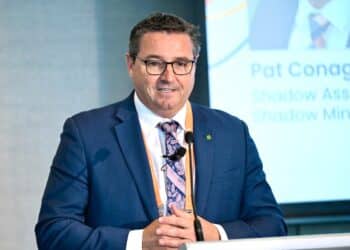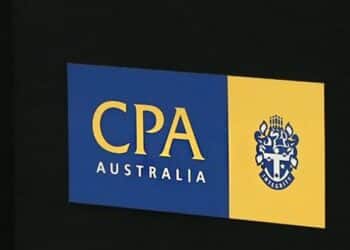Minister for Financial Services Stephen Jones hinted on Wednesday that non-relevant providers working in superannuation funds will provide “narrower advice” and will therefore have to meet “narrower qualifications”.
The government’s policy position on the expansion of superannuation funds’ advisory powers should be known by the end of this year, with legislation set to be released for consultation early next year, Mr Jones confirmed at the FAAA’s congress in Adelaide.
Last week, addressing the second tranche of the government’s response to the Quality of Advice Review (QAR), the minister said he is currently engaging in efforts to consolidate diverse ideas into a unified legislative instrument.
“Everyone had a different idea about what they wanted funds to be able to do. So, three things, scope of advice, competence or skills or training and qualifications required to provide that advice, and then what is funded as part of the normal operations of the fund and what is individually charged. So, working through the details of those three things,” the minister said.
“From a policy point of view, I think we’re pretty close. I’ve got to get whole of government complying on those things.”
And on Wednesday, he revealed that it’s likely to be a “narrower” set of qualifications for those individuals providing advisory services to fund members.
He assured that by “narrower” he doesn’t mean “the lowest of possible bar”.
“I think if we get it right, and we’re determined to, what we do is create a new pathway for someone who has a part of a qualification to then move through perhaps to a fully-fledged financial planner,” Mr Jones said.
This, he explained, would open up a “logical pathway” for someone who starts at a superannuation fund but wants to then become either a self-licensed adviser or work for a licensee.
“That becomes the incentive for them to complete their qualifications,” he said.
Previously, it was the banks that incentivised new entrants into the market. But once they exited the industry in the wake of the royal commission, so did the pathway they had created, which inadvertently caused a significant dent in adviser numbers.
Last month, in an exclusive interview with the ifa, Minister Jones said he is “totally on board with the professionalisation of the industry”, which, he noted, requires an “acknowledged qualification framework”.
“We’ve got a problem here to solve. Let’s work together on it,” the minister said.
At the time, he stressed that a pathway into advice for those studying across other areas of financial services could be key to lifting new entrant numbers.
“People, when they’re leaving school and thinking what university degree they’re going to do, don’t think, ‘Oh, I want to be a financial adviser’. They think, ‘Oh, I’m interested in commerce or I might want to be an accountant, I’m interested in the law, corporations or business’, all that sort of stuff. That’s the degree that they find themselves going towards,” Mr Jones said.
“Having a pathway that enables somebody who might have studied accountancy but at the end of the day, discovered that they were more interested in the people side of the business than the planning and the strategy, and thought financial planning is absolutely for them. How can we get them to connect their very relevant accounting qualifications with a post-degree qualification? That’s necessary.”




Don’t care what all you haters think of Jonesy about his intent in the Financial Advice space. He is a legend and I can’t wait to see all the changes legislated.
sure, if you say so Albo
What will they call the service they provide their members? I thought the term financial advisor is now a term enshrined in law, those who call themselves financial advisors are to complete relevant qualifications and the ethics exam. So when a member calls Australian Super/HESTA/CBUS/Aware super and asks to get advice and gets it who is the relevant provider for the advice, who’s name will be on the advice document, will it be called advice, what “made up title” will they give the persons providing financial advice/guidance when they obviously have a deep understanding of best interest, code of ethics.
“Having a pathway that enables somebody who might have studied accountancy but at the end of the day, discovered that they were more interested in the people side of the business than the planning and the strategy, and thought financial planning is absolutely for them. How can we get them to connect their very relevant accounting qualifications with a post-degree qualification? That’s necessary.” So he is confirming that providing financial advice is about people versus planning and strategy – righto Jones! say no more…
Wow! now it is plain for all to see his true agenda pre-Election promises. A huge let down for Professional Advisers that have been put through the ringer for the last 23 years. For all those in the Advice Industry that were holding out hope for genuine reform, if the above doesn’t confirm what a waste of time any lobbying and submitting to the QAR was, nothing else will. The only option left is come next Fed Election, vote them out and give someone else a go.
[i]He assured that by “narrower” he doesn’t mean “the lowest of possible bars”.[/i]
What he means is they need to be able to speak English, be over the age of 18, and completed a 2 hour online sales course.
That would actually make them more qualified in finance than Minister Jones. The Irony.
While super fund advice may be narrower in scope, it is fundamentally conflicted. Given the challenges of professional advice in the past, do we really want to set up a pathway for new advisers that is fundamentally conflicted by its nature? What sort of message is that sending?
And how comfortable will professional, ethical, advice practices be in hiring new graduates who have been trained in a conflicted advice environment?
[i]And how comfortable will professional, ethical, advice practices be in hiring new graduates who have been trained in a conflicted advice environment?[/i]
Is it any difference to advisers that have spent the last 5, 10, 20 years with AMP, Insignia, Dixons or any of the banks, or any advice company which also has its own products?
Not really much difference at all. And that’s the point. Professional advice has been moving away from that approach. There are far fewer of those sorts of advisers or practices around. Jones is rewinding the clock and inserting the likes of Australian Super, HostPlus, and CBus to take up the space left by the shrinking of older conflicted advice providers. Two wrongs don’t make a right. They make a consumer betrayal.